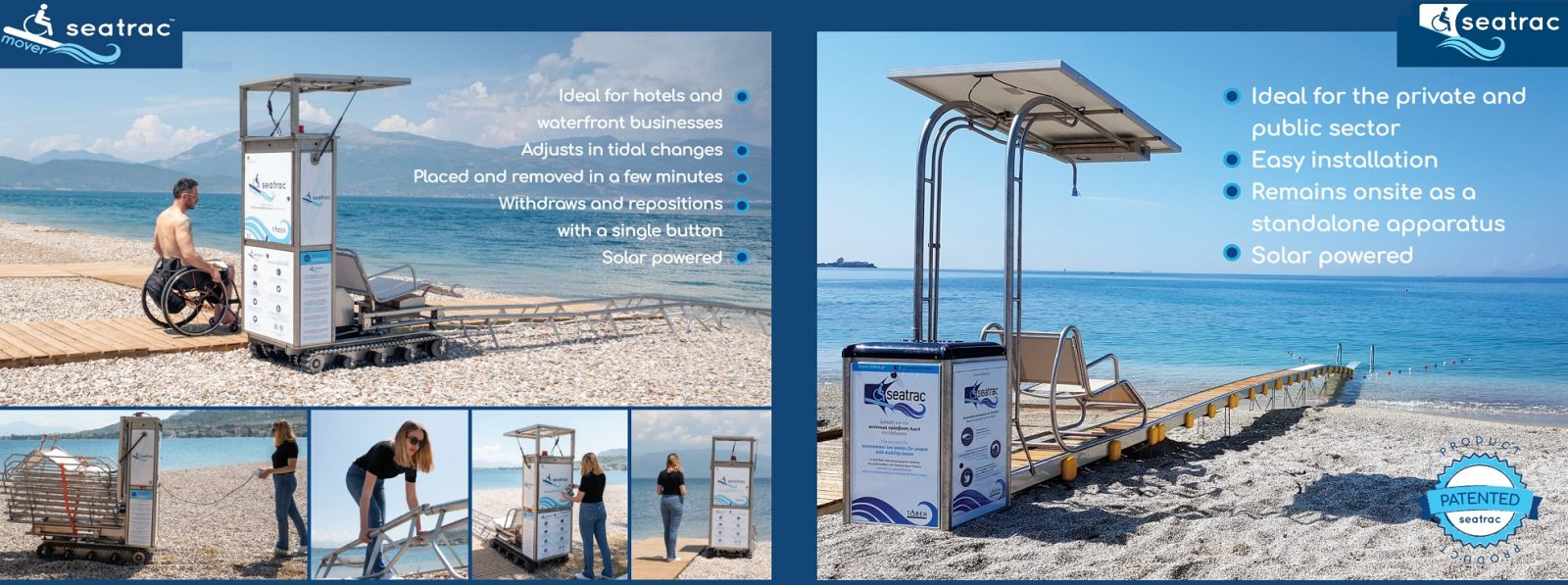The Greek Ministry of Tourism has prioritized making the country’s beaches more accessible to visitors with disabilities. The ongoing “Greece 2.0 – National Recovery and Resilience Plan,” funded by the EU Recovery Fund, has achieved significant success since its launch last year.
The plan outlines actions to support deinstitutionalization, social inclusion, and workforce participation for people with disabilities, aligning with the National Action Plan for the Rights of People with Disabilities (2020).
Several projects have either been enhanced or introduced to improve accessibility, particularly in digital transformation and skill-building programs. These initiatives include promoting independent living, digital training, and upgrading the social welfare system, focusing on people with disabilities. Investments are also directed towards developing accessible tourism, enhancing beach accessibility, and improving cultural venues for disabled visitors.
Efforts are underway to make tourism more inclusive by improving beach access in collaboration with the National Confederation of Persons with Disabilities and the National Action Plan on the Rights of Persons with Disabilities. The initiative also aims to upgrade maritime infrastructures in tourist ports, syncing with the 10-year National Strategic Plan for Tourism Development and the National Development Program 2021-2025.
More than 250 beaches throughout Greece are accessible to everyone, including individuals with limited mobility, the elderly, pregnant women, and those with temporary injuries. A key component in these efforts is the SeaTrac autonomous sea access device for people with disabilities and mobility issues, designed by students of the University of Patras and manufactured by TOBEA. This device allows wheelchair users to enter the sea easily.

SeaTrac machines, now installed on over 250 beaches, have proven extremely popular. According to an Athens-Macedonian News Agency (AMNA) report, TOBEA Marketing Director Persefoni Bertzou noted that Glyfada, Kalamata, and Chania are the most sought-after beaches, with Glyfada receiving 8,000 daily calls.
Municipalities purchase these machines, and TOBEA supports the University of Patras with a portion of the profits from each unit sold.
Further investments aim to extend the tourism season and promote alternative tourism forms like mountain tourism, health and wellness tourism, agrotourism, and diving. These efforts also seek to upgrade regional ports and further enhance beach accessibility for older adults and people with disabilities while focusing on upskilling and reskilling in the tourism sector.
[…] Greece Aims to Lead in Accessible Beaches for Disabled Persons […]